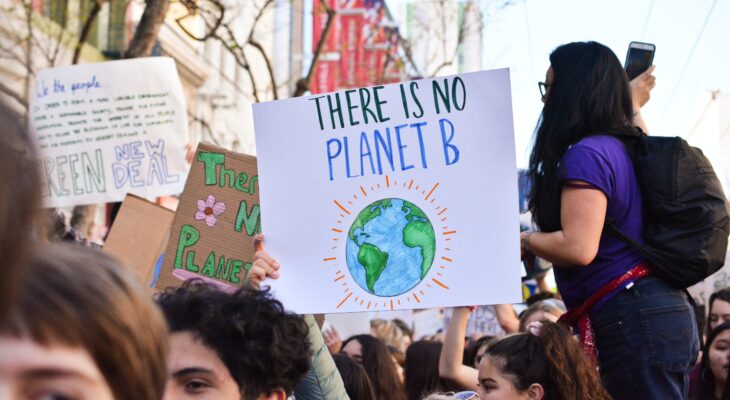The beginning of summer 2022 in the UK saw temperatures in the UK up to 10 degrees above the normal average.
And one of the most dangerous direct effects of climate change is the increasing combination of high heat and high humidity. Why is this bad news for humans? Because high humidity means our bodies can’t sweat enough to regulate internal body temperatures.
So where has all this come from? Well, we, as humans, are currently emitting about 40 gigatons of carbon a year from energy combustion and industrial processes alone. To put a gigaton into perspective, that’s 40,000,000,000 tons of carbon - not the kind of zeros that we want to see.
We’ve been warned enough times that a climate catastrophe is on the horizon. The question is, are we going to do anything about it?
The state of the nation
The UK’s first climate emergency motion was tabled in Autumn 2018 in Bristol. On 1st May 2019, following on from the Welsh and Scottish parliaments, the UK Parliament passed a motion declaring a climate emergency.
Climate Emergency declarations are now widespread. Over 300 out of 404 local councils have now declared a climate emergency, together with eight combined authorities and city regions.
However, since the beginning of 2021, levels of activity and interest around climate declarations appear to be flatlining. On 1st May 2022, the Queen’s Speech to the Houses heralded the Government’s legislative programme for the year. But there were no references to climate change, carbon, or even the humble environment.
It seems that when it comes to policy, the sense of a “burning platform” has dissipated.
The war against climate change must be relentless, all-encompassing and - above all - visible.
Nathan Goode, Chief Strategy Officer, Social Value Portal
Our problems are interlinked
The non-stop march of global warming and climate change won’t wait for us to sort out our problems today. In fact, our short-term issues are directly tied into the bigger challenges facing the planet. Food and energy costs are huge contributors to the cost-of-living crisis. And we know that rising energy costs are driven by our continued dependence on fossil fuels for power and transportation.
Likewise, food production depends on land productivity, and of course, fossil fuels, to produce fertiliser. Our creaking global supply chains are also killing our oceans and their ability to absorb carbon.
The war against climate change must be relentless, all-encompassing and - above all - visible.
The state of the planet
It's blindingly clear that we have collectively failed to scale up our response fast enough over the past two decades. Today, the debate has two key elements:
- Mitigation actions to limit and reduce global warming
- Adaptation to recognise that some level of climate change is now inevitable and the steps to take to live with it
This is where Social Value can help.
How can Social Value play a role?
Social Value has a crucial role to play. By making the climate crisis a fundamental part of the Social Value agenda, we can:
- Following the words of the Intergovernmental Panel on Climate Change, recognise “the interdependence of climate, ecosystems and biodiversity and human societies”
- Acknowledge the challenge in a way that relates to people and communities
- Consider the social factors in the climate crisis, both in terms of the change that’s coming, and the role people play in either tackling or exacerbating the crisis
- Ensure that the Social Value movement plays its part by building climate change into our discourse and processes
The question is how to do this, given the huge diversity of organisations, places and projects that already measure Social Value...
There is a solution
An effective reporting and measurement mechanism for the environment within a Social Value framework is required. The environment shouldn’t be considered as separate to Social Value. Social Value in procurement and measurement allows us to start these considerations early with organisations who may not be using other environmental tools.
The Social Value TOM System™ offers a simple way to address the social factors in the climate crisis. It allows us to see the reporting and measuring for organisations and projects. It makes it visible.
We need organisations to record the data to build the environmental narrative and further build momentum. The TOM System is there to record this. Social Value is all about going above and beyond business as usual. How we go above and beyond in the fight against climate change must become part of our everyday Social Value language.
The TOM System is a free to use, market-leading standard for reporting your Social Value. Put it into practise when you fight the climate crisis.




